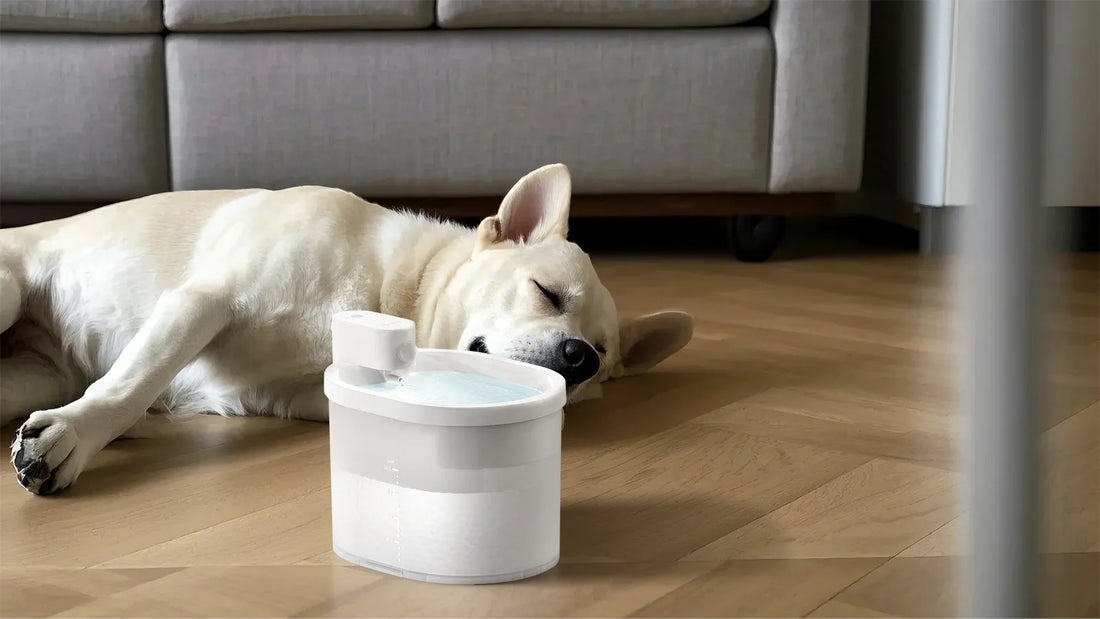When your dog stops eating or drinking and becomes lethargic, it can be a cause for serious concern. As a pet owner, it's essential to understand the potential reasons behind these symptoms and take appropriate action to ensure your furry friend's health and well-being. This article will explore the various causes, signs to watch for, and steps you can take to help your dog recover.
Common Causes of a Dog Not Eating or Drinking and Lethargic
There are several reasons why your dog might stop eating or drinking and appear lethargic. Some of the most common causes include:
- Illness or Infection: Dogs, like humans, can fall ill. Infections, viruses, or other illnesses can lead to a loss of appetite and energy.
- Dental Problems: Painful dental issues, such as tooth decay or gum disease, can make eating uncomfortable for your dog.
- Stress or Anxiety: Changes in the environment, routine, or the presence of new pets or people can cause stress, leading to a lack of appetite and lethargy.
- Medication Side Effects: Certain medications can cause side effects that include loss of appetite and decreased energy levels.
- Chronic Conditions: Long-term health issues like kidney disease, liver problems, or cancer can lead to these symptoms.
Signs to Watch For
In addition to your dog not eating or drinking and being lethargic, there are other signs that may indicate a more serious issue. These include:
- Vomiting or Diarrhea: Frequent vomiting or diarrhea can lead to dehydration and further loss of appetite.
- Weight Loss: Sudden or unexplained weight loss is a red flag that something is wrong.
- Changes in Behavior: If your dog is unusually aggressive, withdrawn, or shows other behavioral changes, it could be a sign of underlying issues.
- Physical Symptoms: Look for signs like a bloated abdomen, difficulty breathing, or visible pain.
What You Can Do
If your dog is not eating or drinking and appears lethargic, there are several steps you can take to help:
- Monitor Your Dog: Keep a close eye on your dog's behavior and symptoms. Note any changes or new signs that may appear.
- Offer Comfort: Ensure your dog has a comfortable and quiet place to rest. Sometimes, a little extra care can make a big difference.
- Encourage Hydration: Try to encourage your dog to drink water. You can offer ice cubes or flavored water to make it more appealing.
- Consult a Veterinarian: If your dog's symptoms persist for more than 24 hours, it's crucial to seek professional advice. A veterinarian can perform tests to determine the underlying cause and recommend appropriate treatment.
Preventative Measures
While it's not always possible to prevent your dog from becoming ill, there are steps you can take to reduce the risk:
- Regular Check-ups: Routine veterinary visits can help catch potential health issues early.
- Balanced Diet: Ensure your dog is eating a balanced diet that meets their nutritional needs.
- Exercise: Regular physical activity can help keep your dog healthy and reduce stress.
- Dental Care: Regular dental check-ups and cleanings can prevent painful dental issues.
Seeing your dog not eating or drinking and lethargic can be distressing, but understanding the potential causes and taking prompt action can make a significant difference. By monitoring your dog's symptoms, offering comfort, and consulting a veterinarian when necessary, you can help ensure your pet's health and well-being. Remember, early intervention is key to addressing any underlying issues and helping your dog recover quickly.













